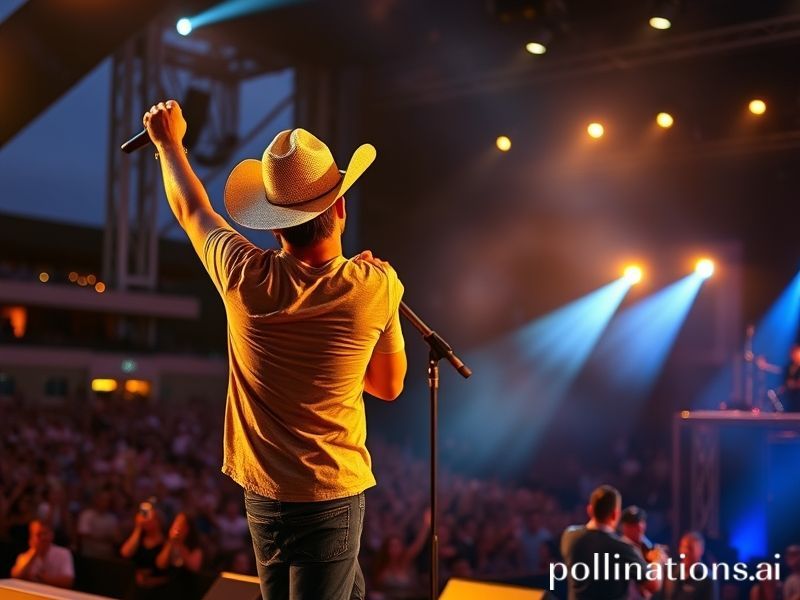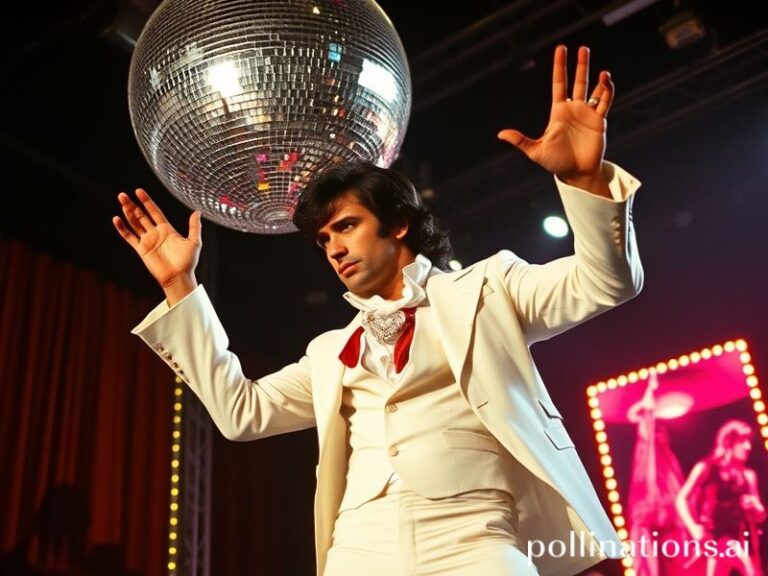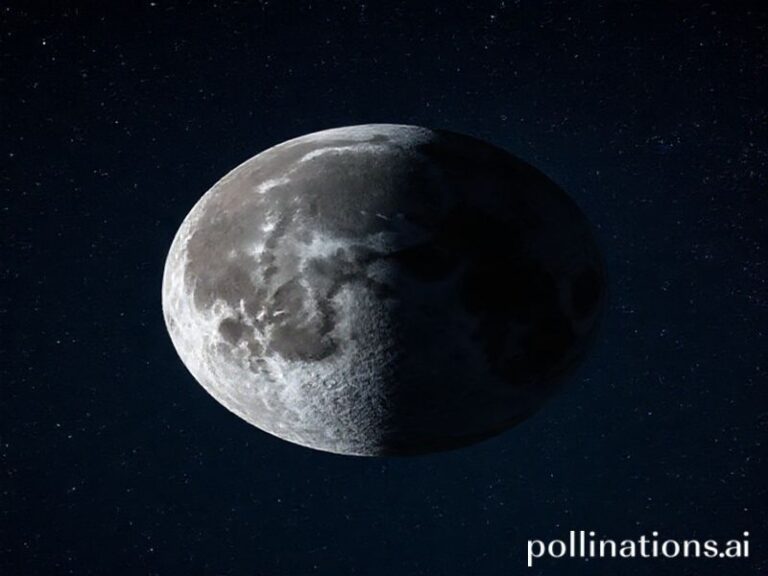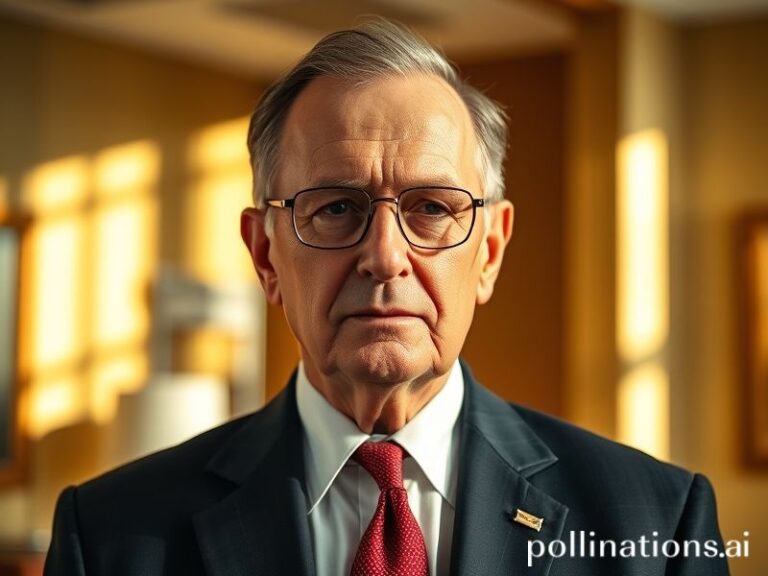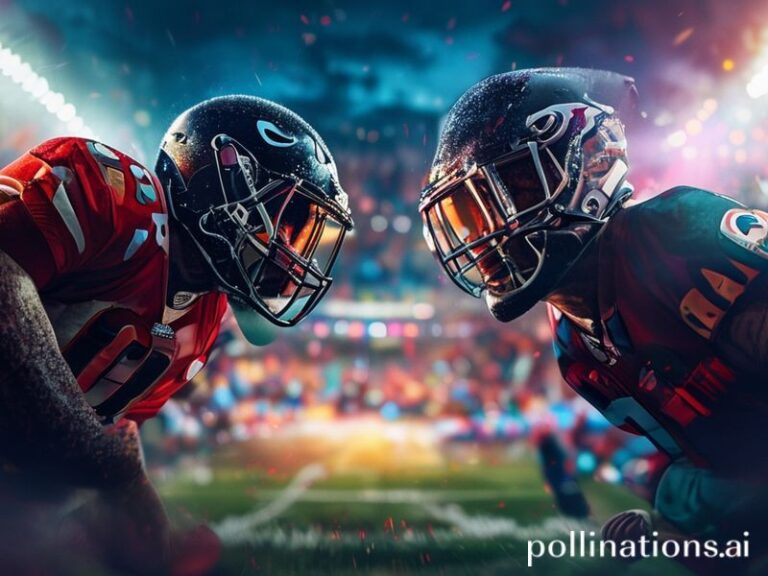Luke Bryan: How a Georgia Farm Boy Became America’s Cheapest Form of Soft Power
Luke Bryan: The Last American Cowboy in a World Running Out of Horses
DAVE’S LOCKER, International Desk – Somewhere over the Atlantic, at 39,000 feet and counting, a Boeing 787 hums with the latest Luke Bryan single piped through the in-flight entertainment system. A German banker in 12C nods politely, a Lagos tech founder in 22A Shazams it, and the flight attendant from Manila mouths the chorus without knowing what a “Tennessee river” actually looks like. That, in microcosm, is the geopolitical footprint of Thomas Luther “Luke” Bryan: an export commodity as quietly omnipresent as soybeans, Microsoft Excel, and crippling student debt.
Born in rural Georgia when the Berlin Wall still cast its profitable shadow, Bryan now plays the role of America’s soft-power Marlboro Man—only the horse has been replaced by a sponsored Chevy Silverado, the campfire now includes a digital tip jar, and the existential dread is served with a side of Lite beer. From Brisbane to Baku, streaming platforms count his twangy odes to dirt roads and denim shorts as reliable quarterly filler between K-Pop drops and Afrobeats remixes. One could argue that Luke Bryan’s greatest diplomatic achievement is convincing the planet that Friday night in a Wal-Mart parking lot is a universal human experience, second only to climate anxiety.
The international implications are, frankly, hilarious. While the EU debates carbon tariffs, Bryan sells out Dublin’s 3Arena singing about pickup trucks that get nine miles per imperial regret. Chinese state media once cited his ballads as evidence of “rural American authenticity,” which is a bit like using a Marvel movie to study urban planning. Meanwhile, in Dubai, expats pay $200 for VIP “country brunch” packages where they two-step in air-conditioned tents, praying the playlist skews Bryan-heavy because anything more authentically Appalachian might remind them why they left Kentucky in the first place.
Bryan’s brand synergy is so seamless it could teach NATO a thing or two. He endorses beer that sponsors fishing tournaments livestreamed on phones assembled in Shenzhen, all soundtracked by songs about unplugging. The irony isn’t lost on anyone—except the algorithm, which registers only engagement metrics and quietly stockpiles metadata for the next micro-targeted coup. Even Russia once floated a rumor that Bryan’s 2013 hit “Crash My Party” contained subliminal pro-democracy messaging, apparently because nothing terrifies an autocrat like the prospect of citizens line-dancing toward civil liberties.
Yet beneath the sun-bleached optimism lies the darker calculus of modern fame. Bryan’s father died when he was 19; his older brother perished in a car accident; his sister lost her husband unexpectedly. Tragedy, the original American folk tradition, is the ghostwriter on every chorus. The global audience absorbs this grief repackaged as escapism, a neat trick that keeps therapy bills down and streaming numbers up. In that sense, Luke Bryan is less a singer than a coping mechanism on Spotify Premium.
So what does it mean when a man who once stocked groceries in Leesburg, Georgia, can fill stadiums in São Paulo where nobody owns a tractor but everybody knows the words to “Rain Is a Good Thing”? It means soft power now travels in 4/4 time. It means the last export the United States still manufactures convincingly is a fantasy of uncomplicated freedom—sold by the download, monetized by the nostalgia, and leveraged by every credit-card company eager to soundtrack your next late-night impulse purchase.
And as the plane begins its descent into Heathrow, seat-back screens fade to black, the German banker returns to his yield-curve spreadsheets, the Nigerian founder drafts a pitch deck titled “Afro-Rodeo Market Disruption,” and the flight attendant hums the final refrain. Somewhere above the clouds, Luke Bryan keeps singing about a simpler world that never existed, and we keep buying tickets to go there—one algorithmic playlist at a time.

